Currently on view at FOMU in Antwerp, Chrystel Mukeba – I’ve Never Seen My Father Cry is an intimate and arresting exploration of memory, migration, and intergenerational silence.
At the end of 2024, Chrystel Mukeba (b. 1983) and her father André travelled to Kinshasa. It was a significant journey for them both: she had never been to the Democratic Republic of Congo, and he had not returned in 46 years. With this exhibition, through still and moving images, Chrystel documents a physical return and a layered homecoming marked by longing, distance, and rediscovery. The exhibition traces this shared journey across continents, memories, and emotions, offering a deeply personal meditation on the past as it lives on in the present.
ARt Gallivant is a reader-supported publication. To receive new posts and support my work, consider becoming a free or paid subscriber.
Subscribed
Trending displacement vs generational voids
In a moment when diasporic storytelling seems to be everywhere, on screens, on panels, in festivals, one might wonder: Is this surge a thematic trend, a way to engage white publics with semi-romantic, digestible tales of ‘otherness’? Or worse, is it a form of decolonial coping, a palatable reframe of trauma for the sake of visibility?
Mukeba’s work suggests the contrary. Her filmic practice doesn’t dilute the depth of these stories; instead, it affirms their complexity and multiplicity. After all, what stories should a filmmaker know more intimately than their own—those of their people, lineage, and dislocated homes? Why should stories about Black European lives be considered less ‘universal’ than When Harry Met Sally? If anything, Mukeba’s storytelling engages with history, specifically, the history dealt to people with immigrant backgrounds, often without consent and certainly without context.
It is a compelling visual essay grappling with memory, displacement, and identity themes. Through archival footage, personal narration, and a striking use of sound and silence, Mukeba invites viewers into a deeply intimate yet politically resonant reflection on diasporic life and inherited memory.
This rings especially true within the Belgian context. Her work is deeply influenced by history. Following Congo’s independence from Belgium in 1960, a wave of Congolese migration to Europe began, particularly to Belgium, the former colonial power. Many came to pursue studies, others sought safety, opportunity, or were sent abroad by their families in the hope of a better future. These journeys often came with rupture: of language, of land, of generational continuity. Mukeba’s work isn’t just about personal memory, but also about the inherited histories of migration—stories shaped by the Belgian colonial past and its lingering effects. Mukeba’s father was among those who left at a young age, part of a generation raised in Europe yet shaped by the silences and absences of a place they no longer knew, but could not forget.
The diasporic story of second-generation Congolese children—now adults—resonates with a wider present-day population. Mukeba’s work aids in remembering, in being mesmerised by the landscape. Her story also embodies that familiar experience of generational silence that can be similar to different publics -the weighted voids it creates. She asks for these absences to be acknowledged and gently be makes them visible.
Authentic Positioning
What I find particularly a triumph in Chrytels’s work is how she navigates her positioning while working with such personal material. Many artists grapple with the tension of personally engaged making, how to insert oneself without consuming the frame. Although I would love to discuss this directly with Chrystel, the first thing that stood out to me is her shift in subject matter, towards something more personal. While her previous work also engaged with the topic of Congo, it did so through portrait-style photography. This new direction feels more intimate, layered, and emotionally charged. Her use of colour and documentary imagery is striking, underscoring the very point I’m trying to make. Perhaps filmmakers can only tell the stories they know best—those for which they hold deep curiosity. Shouldn’t artists lean into the stories closest to them, rather than retreat into safer, more distant narratives?
The work is not about her directly, but about understanding the void through her father—a homecoming for them both. She turns the camera on him to facilitate her reckoning, acknowledging the distance of her becoming as something sculpted by his experience. Each frame carries the echo of trauma held in another body. The film rings with curiosity and integrity, marking this not as a trendy choice of subject but as an authentic position from which to tell an authentic and critical story.
The images and sounds she collects are not just about archiving the past but about arresting it—grasping the past in the present in real time as she moves through this new timeline. Moments such as those shared with her aunt, captured while en route, hold a quiet intimacy that speaks volumes. There’s a documentary process of decoding, encoding, and narrating. A continual cycle of memory work. Interactions with her aunt allude to the void between past and present; their exchanges hold weight in what is unsaid.
The process of Memory Through Image
How she makes visual choices also reflects tension and her chosen pov; Mukeba’s black and white images and deliberate use of silence in her moving images add colour to this tension, there is no over-politeness, no over-explanation. Her position within and outside the story is visual, not just narratively, but formally. We see her point of view rather, neither fully in it, nor entirely out. Watching, waiting, perhaps to be invited in, indulged, or at her father's pace, for whom this journey is live, raw, and unfolding in real time. It is a homegoing of sorts, a return to a home once titled to the back of memory, now brought into the present. A different present—not necessarily better or worse (though at times noticing change, as he remarks on once tree-filled street now swallowed by traffic). Mukeba doesn’t dramatise this change; she sits with it, and in doing so, invites us to sit with it too.
How was the past?
I see universality in this story, speaking with the father, the father speaking with her while not speaking directly, but revealing carefully. What are the stories our parents share, or are meant to share? It’s made me think of the coming-of-age experience we engage in when we begin to know our parents. Who they were before X—which could be our birth, that marriage, that tragedy, the migration. How was the past?
It reminds me of how much I appreciate photography as a medium, and how that love has unfolded over the past few months. One such photo that reminded me of this mellow feeling, where you’re transported to a familiar emotion, is the photo above. This could have been taken at the top of my childhood home. We see a weathered gate, a palm tree, and the landscape ahead. Like myself, I don’t think this was necessarily a depiction of Chrystel’s home, but of Home, and what that feels like. The top of a hill, looking at a gate that could have been mine or my best friend’s. The best friend I’d play with. I’m transported to a hot summer in Africa, seeking a playdate. The familiarity of gated suburbia is in the symbol of the gate—a sanctuary portal, not a barrier. It was sweet as I stood still in front of this photo, remembering the many colours of a friend’s house. To remember the "beware of dog" signs that lied—the dogs were friendly, wouldn’t hurt a soul. Or rather, they knew who to keep safe.
Chrystel, in this picture, is at home in a way, with the depth of an insider. There’s hesitation, but seeing through the viewfinder is like dust settling. She’s becoming close to it. No figure in the frame, just observing and taking in a hot summer day at home.
Homecoming’ is the first part of Mukeba’s ongoing project, I’ve Never Seen My Father Cry. As this is only the beginning of the journey, I’m eager to see what Chrystel has in store for us and herself.
The exhibition Chrystel Mukeba – I’ve Never Seen My Father Cry is on view at FOMU in Antwerp until the 4th May 2025. I’m personally looking forward to hearing Chrystel speak about this journey in conversation, scheduled to take place sometime toward the end of the exhibition.
Other works:



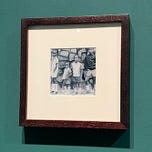


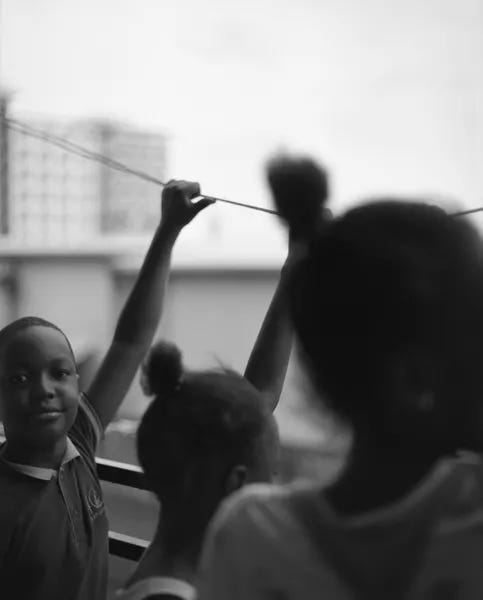
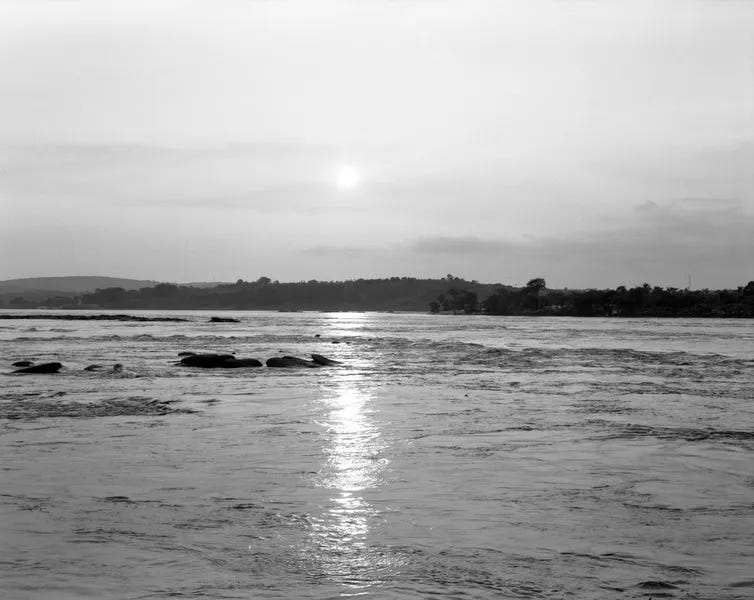
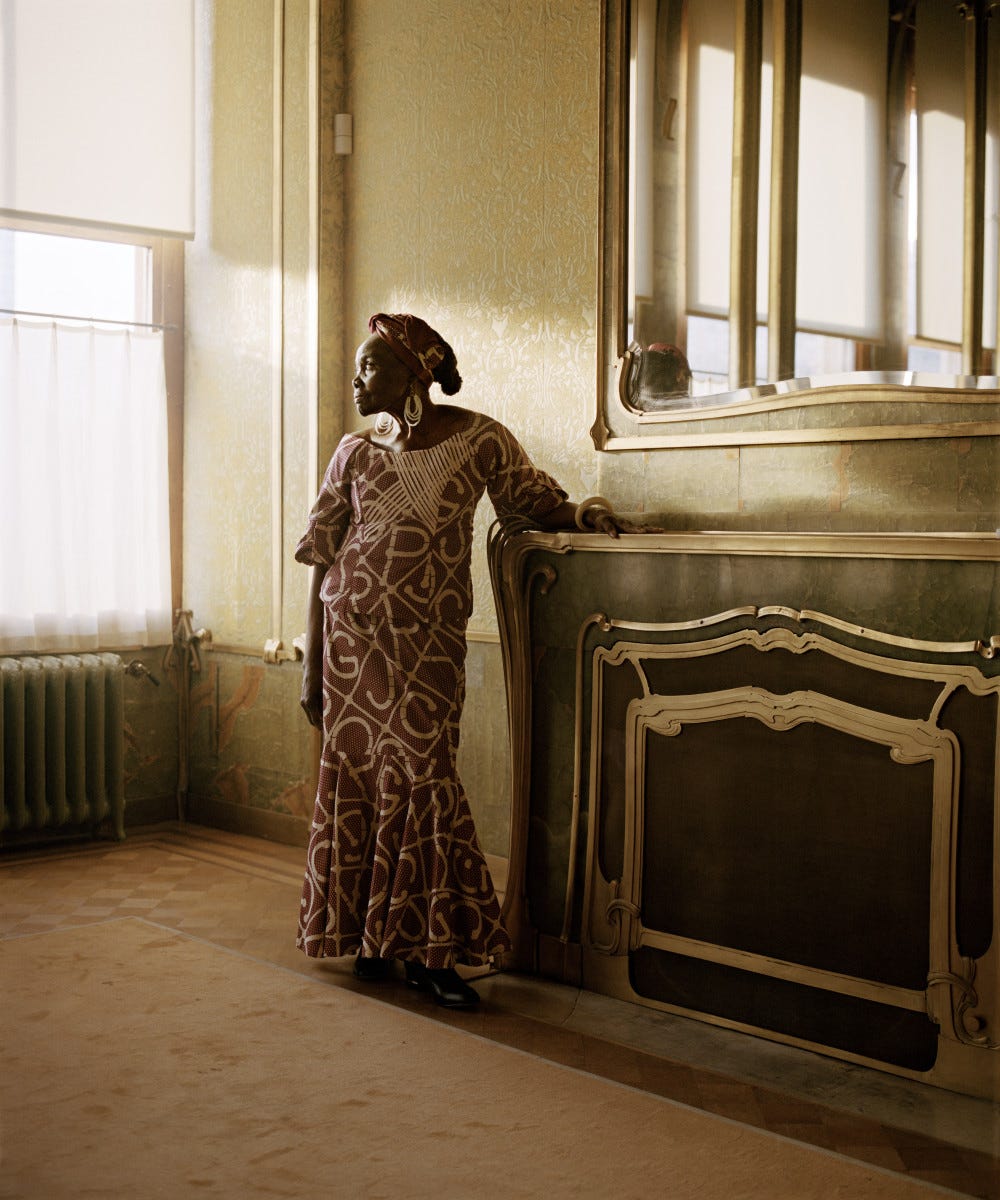
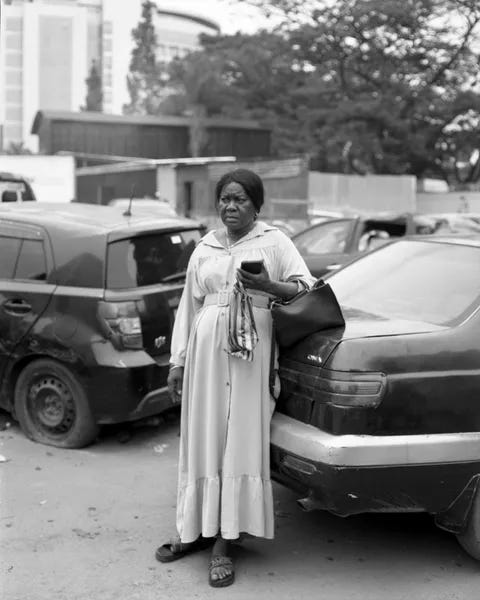
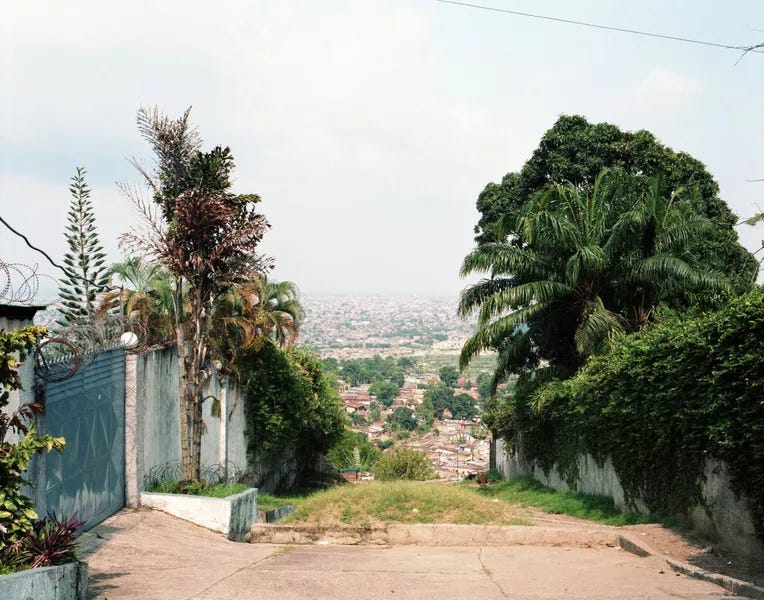




Share this post